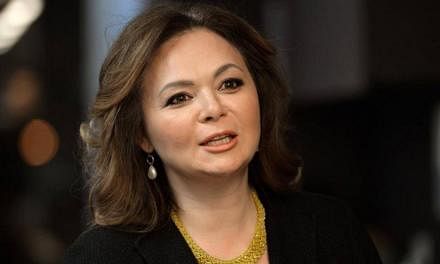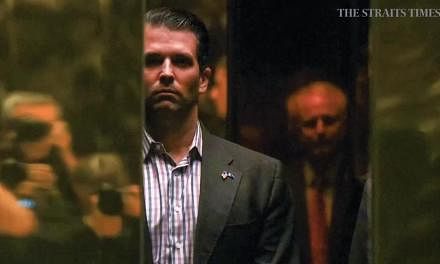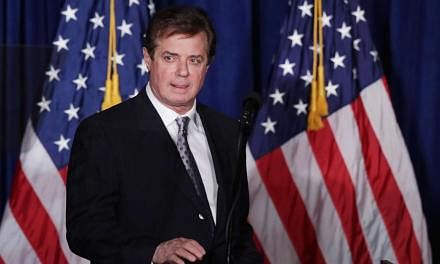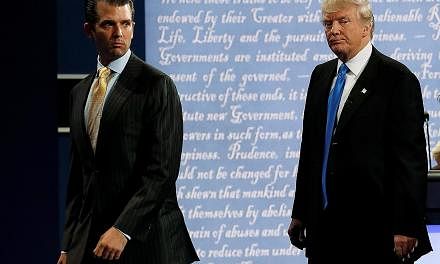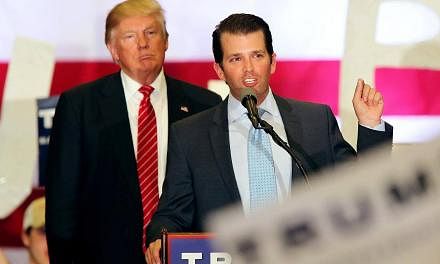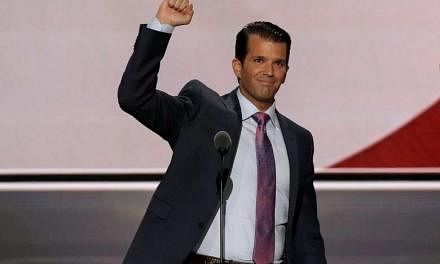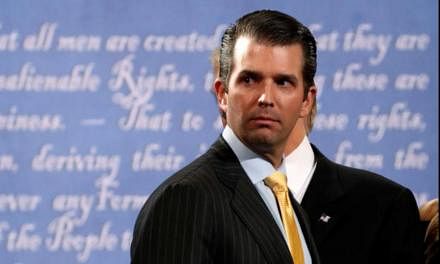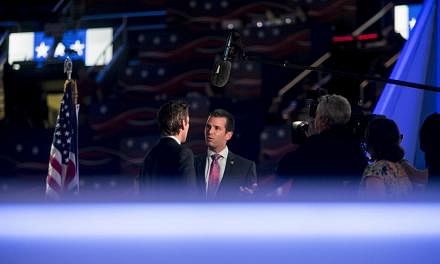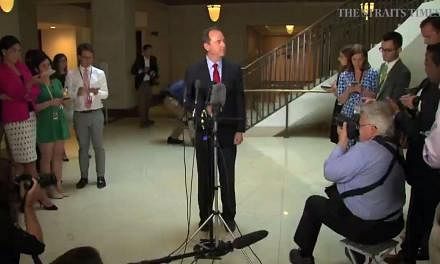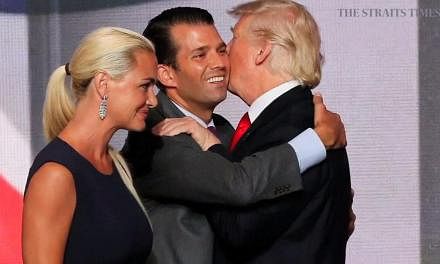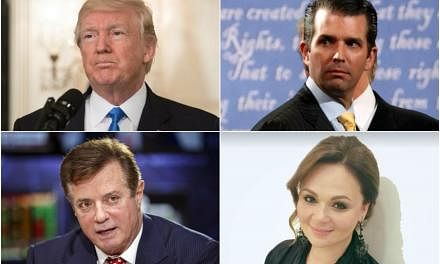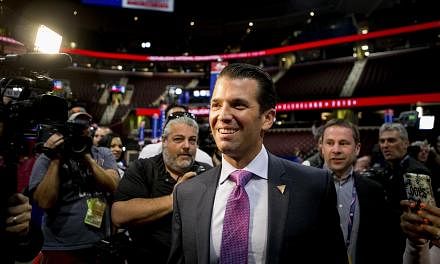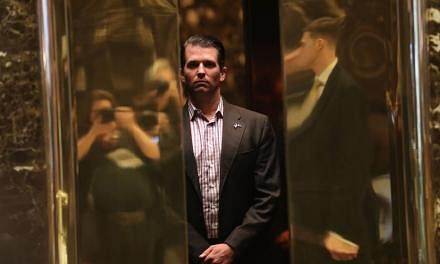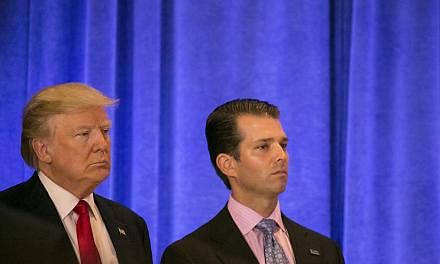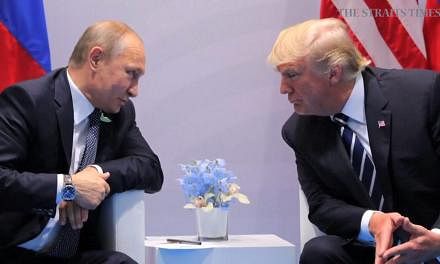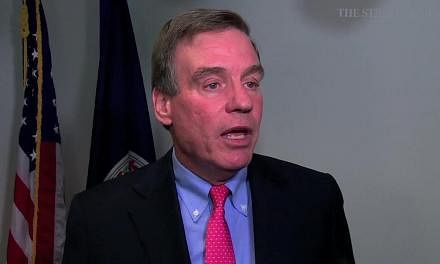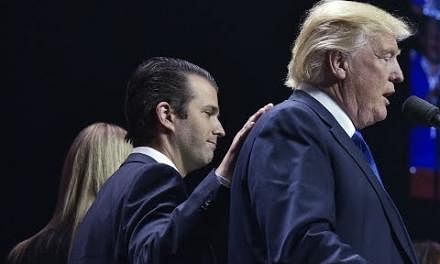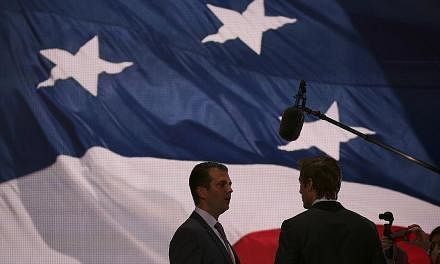WASHINGTON (BLOOMBERG) - United States President Donald Trump's campaign committee paid US$50,000 (S$68,576) in late June to the law firm now representing Donald Trump Jr in the matter of a 2016 meeting with a Russian lawyer while seeking damaging information about Democrat Hillary Clinton.
The June 27 payment to the Law Offices of Alan S. Futerfas came almost two weeks before news of the meeting - involving Trump's eldest son and two other top Trump confidants, son-in-law Jared Kushner and then-campaign manager Paul Manafort, as well as lawyer Natalia Veselnitskaya and a former Soviet counterintelligence officer - was reported.
The disclosure was part of a quarterly release by the Federal Election Commission. The agency showed Trump raised US$13.3 million through three fund-raising committees in the second quarter, up from the US$12.6 million during the prior three months. The committees ended June with US$22.6 million cash on hand, including US$11.9 million in his campaign coffers.
Trump's campaign paid US$677,827 for legal services in April through June, up from US$249,344 in the first quarter. The bulk went to Jones Day, the campaign's law firm, and about US$90,000 was paid to the Trump Corporation, now run by Trump Jr and his brother Eric, as well as the US$50,000 to Futerfas's firm.
The White House didn't respond to a request for comment. Futerfas didn't immediately respond to an e-mail seeking comment outside normal office hours.
New York criminal defense attorney Alan Futerfas was publicly revealed as a lawyer for Trump Jr on July 10, two days after the gathering at Trump Tower in New York was first reported by the New York Times. The mushrooming controversy about the meeting has fueled fresh accusations of collusion with Russia.
Small-Dollar Donors The FEC showed that during the second quarter Trump received US$5 million from small-dollar donors, or those who contribute US$200 or less. He also saw a surge of big-money support, fueled in large measure by donors writing substantial checks to join the president at a closed-door event at his hotel in Washington in June, the first fund-raising event of his re-election campaign.
The money was raised during the period when investigations into allegations of Russian interference in the 2016 election led Trump to fire Federal Bureau of Investigation director James Comey. Former FBI director Robert Mueller then took charge of the government's probe as special counsel.
"It's not unusual to have a president raise money for his party, but it is highly unusual for a sitting president to raise this much money for his own campaign this far away from the election," said Michael Beckel, research director of Issue One, a group that supports tighter limits on big money in politics.
Hotel Event Trump Victory, a joint fund-raising committee that benefits both his campaign and the Republican National Committee, took in US$5.2 million from donors giving US$35,000 or more, the price of admission to the June 28 event at the Trump International Hotel. The committee didn't disclose how much it paid to use the hotel, in which Trump retains an ownership interest.
Under campaign finance law, campaigns can conduct business with candidates' businesses if they pay fair market value for the services. The disclosures show that Trump's committees paid about US$210,000 to businesses Trump owns.
Former President Barack Obama had been in office more than two years before he headlined his first re-election fund-raiser. Former President George W. Bush raised US$268,423 in his first two years in office, according to FEC records.
In part, Trump's fund-raising has been fueled by continued appeals to small-dollar donors. His online store continues to hawk everything from hats to coffee mugs to golf club covers, with purchases benefiting the Trump Make America Great Again Committee, another joint fundraising committee focused on grassroots supporters. And his campaign committee sends contributors text messages asking them to contribute.
"FAKE NEWS is the enemy. They don't want YOU to hear the truth!" read one message sent on May 31, which included a link to a page for making donations.
On June 16, Trump offered his small-dollar donors a shot at attending June fund-raiser, selecting a winner among those who contributed within two hours of receiving the text to be entered in a contest to attend the event.
"Do not worry about a thing," the appeal read. "We will fly you to DC, we will take a picture together and you will stay at a big beautiful hotel."

